There are problems with your build, please fix before proceeding.
Can't see what you want? contact us
Customise your HyperServe RME2-1U4-D
- AMD EPYC 7002-Series Processors , Dual Socket (SP3)
- 4 x 3.5" hot-swappable HDD/SSD bays
- 2 x 1GbE LAN ports (1 x Intel® I350-AM2), 1 x 10/100/1000 management LAN
- 1+1 1200W 80 PLUS Platinum Redundant Power Supply
- 1U, 730mm Depth
Configure from £3683.32 inc VAT
or
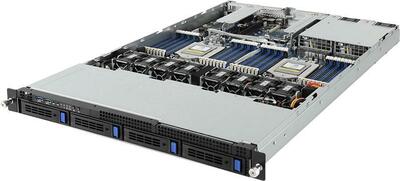
Base Specification
Processor
Description: AMD EPYC ROME 7252, 8 Core 16 Threads, 3.1GHz, 64MB Cache, 120Watts.
Architecture Features: 128x PCI-E Lanes
Cache: 64MB
Clockspeed: 3.1GHz Base, 3.2GHz Boost
Manufacturer: AMD
Supports Virtualisation: Yes
No. of Cores: 8 Cores, 16 Threads
Memory
Description: 8GB DDR4 2666MHz ECC Registered DIMM
Speed: 2666
GB: 8
Case
Description: 1U Dual Epyc 7002 4x 3.5" Drive bays 1200W 80 PLUS Platinum Redundant Power Supply
Colour: Black
Dimensions: 438 x 43.5 x 730 (WxHxD, mm)
Drive Bays 3 1/2": 4
Drive Bays 5 1/4": 0
Form Factor: 1U Rack
Front Panel Connections: 2 x USB 3.0
1 x Power button with LED
1 x ID button with LED
1 x NMI button
1 x Reset button
2 x LAN activity LEDs
1 x HDD activity LED
1 x System status LED
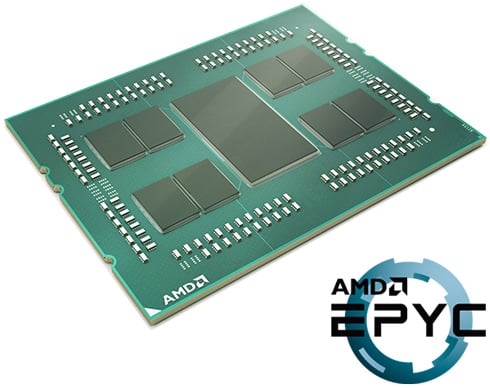

AMD EPYC™ 7002 Series Processor (Rome)
The next generation of AMD EPYC has arrived, providing incredible compute, IO and bandwidth capability – designed to meet the huge demand for more compute in big data analytics, HPC and cloud computing.
- Built on 7nm advanced process technology – the best the industry has to offer, allowing for denser compute capabilities with lower power consumption
- The world’s first 64 core data center CPU, built using Zen 2 high performance cores and AMD’s innovative chiplet architecture
- The world’s first mainstream PCIe Gen 4.0 data center CPU with a bandwidth of up to 64GB/s, twice of PCIe Gen 3.0
- Embedded security protection to help defend your CPU, applications, and data
R182-Z90 System Block Diagram
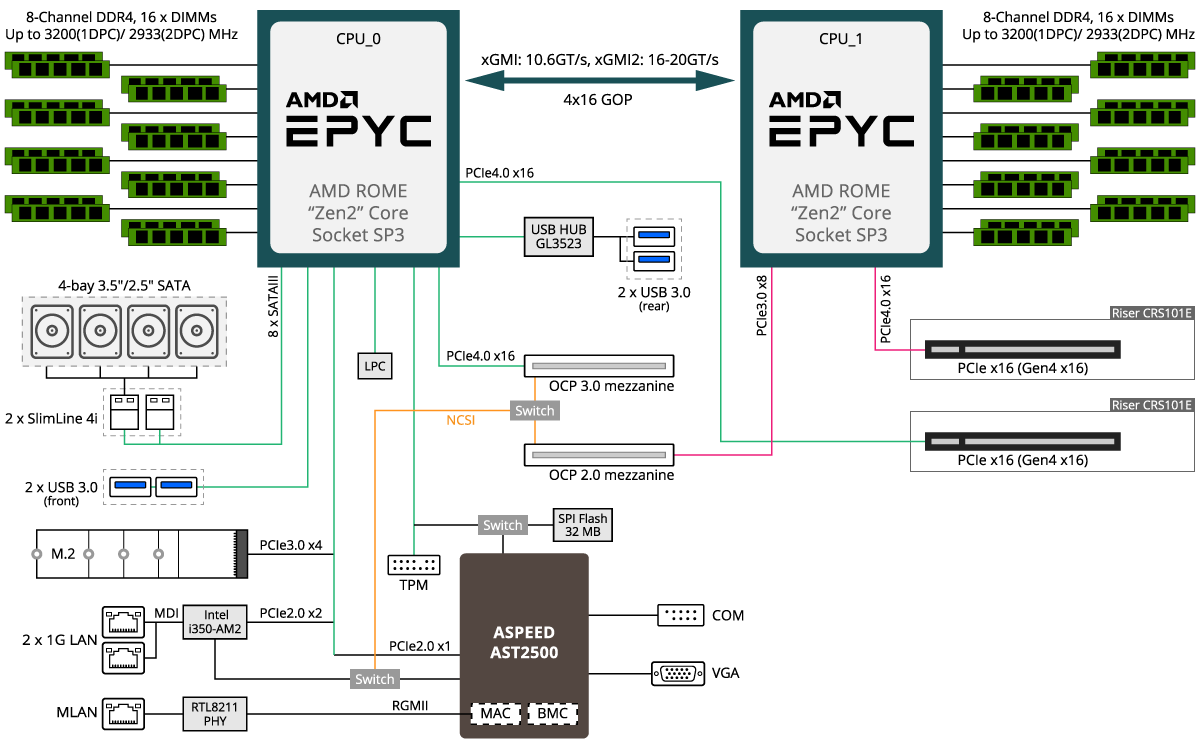
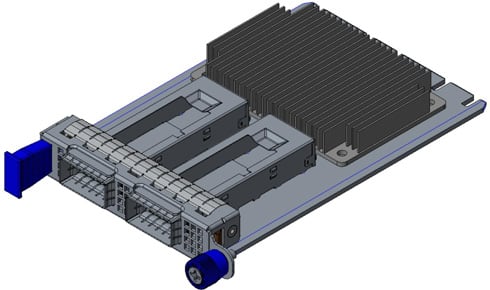
OCP 3.0 Add-On Card Ready
GIGABYTE’s AMD EPYC Rome Server Platforms feature an onboard OCP 3.0 mezzanine slot for the next generation of PCI Gen 4.0 add on cards.
Compared to previous OCP 2.0 type cards, advantages of this new type include:
- Easier Serviceability: simply slot in / pull out the card without needing to open the server chassis; tool less design
- Larger Thermal Envelope: more space for heat sink provides an increased power budget for new & emerging capabilities
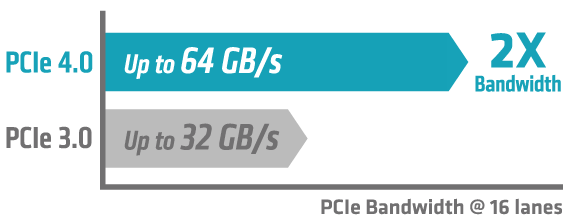
PCIe Gen 4.0 Ready
AMD EPYC Rome is the world’s first mainstream data center CPU to support PCIe Gen 4.0, with a bandwidth of 64GB/s, twice that of PCIe Gen 3.0. This doubles the bandwidth available from the CPU to peripheral devices such as graphics cards, storage devices and high speed network cards. GIGABYTE’s AMD EPYC 7002 Series server platforms are ready to be used with a new generation of PCIe Gen 4.0 devices such as AMD’s Radeon MI50 GPGPU.
* The PCIe 4.0 standard supports a 16 GT/s bit rate, (roughly 2GB/s per single lane) as opposed to 8GT/s bit rate for PCIe 3.0 (1GB/s).
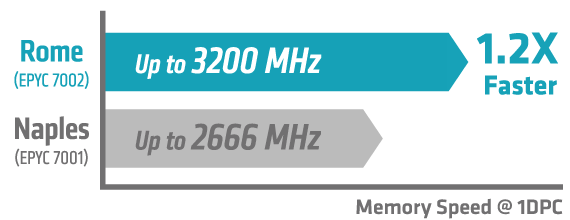
Higher Memory Speed
AMD EPYC’s Rome 7002 Series processors feature faster 8 channel DDR4 memory lanes, supporting RDIMM or LRDIMM memory modules with a speed of up to 3200MHz (1 DIMM per channel)
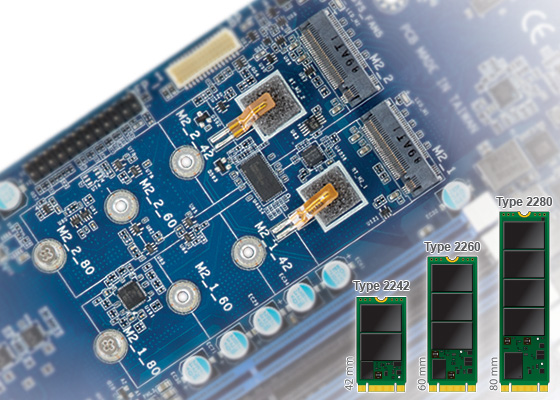
More M.2 Storage
GIGABYTE’s AMD EPYC 7002 Series server platforms feature more M.2 drive capacity for ultra-fast NVMe storage – both onboard M.2 slots and extra capacity via optional riser cards.
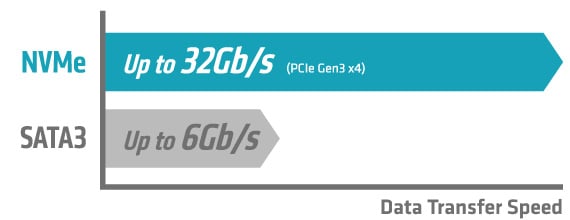

Max TDP Support
GIGABYTE’s AMD EPYC server platforms come ready to support the full list of AMD EPYC Rome 7002 Series processors: up to 225W (standard TDP) / 240W (cTDP)

Data Security
TPM 2.0 Module - GIGABYTE’s AMD EPYC Server is designed to support Trusted Platform Modules (TPM - discrete cryptographic on-board processors).

Tool-less Rail Kits
Rail kits attach to the side of the server chassis via clipping mechanism.

Tool-less 2.5” & 3.5” Drive Bays
Clipping mechanism secures the drive in place. Install or replace a new drive in seconds.

Efficient, Reliable Power Supply
GIGABYTE’s AMD EPYC 7002 Series server are designed to guarantee high conversion efficiency regardless of load. Redundant 80 Plus ‘Titanium’ or ‘Platinum’ PSUs, combined with GIGABYTE’s precision engineering, translates to super efficient power usage which maximizes the system’s power : performance ratio and reduces OPEX for the user.

GIGABYTE BMC Interface
GIGABYTE has developed this integrated function (requiring no additional software) that allows users to update the BIOS of motherboards through the BMC controller:
- No need to install core components such as CPUs, memory, drives and OS
- No need to power on the system (NB. PSU must be connected)
- Update individual (IPMI 2.0) or multiple boards simultaneously (Command Line)
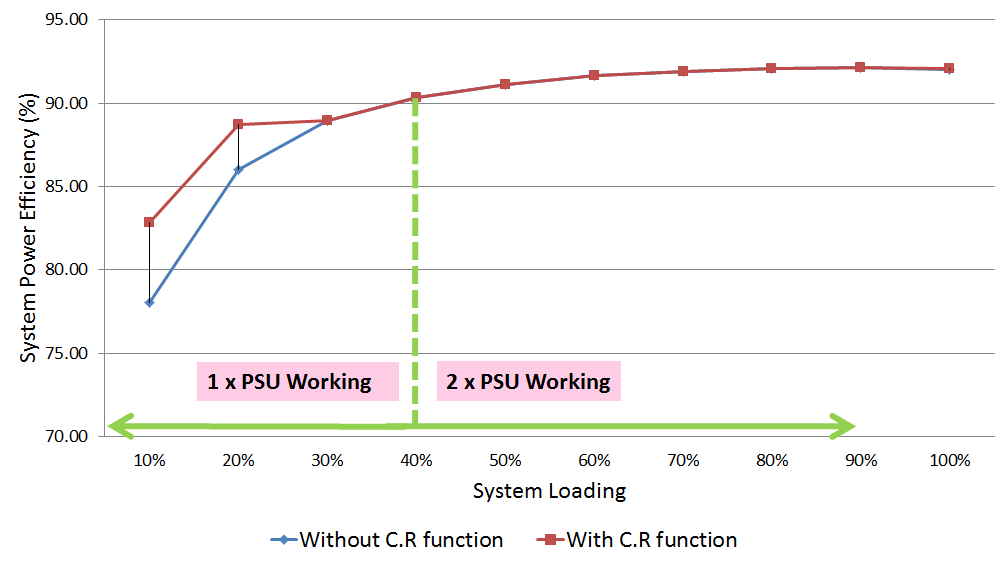
Cold Redundancy
To take advantage of the fact that a PSU will run at greater power efficiency with a higher loading, GIGABYTE has introduced a power management feature called Cold Redundancy for servers with dual PSU. When the total system loading falls lower than 40%, the system will automatically place one PSU into standby mode, enabling the other PSU to take over the greater load. This can enable total system power efficiency savings of up to 10%.
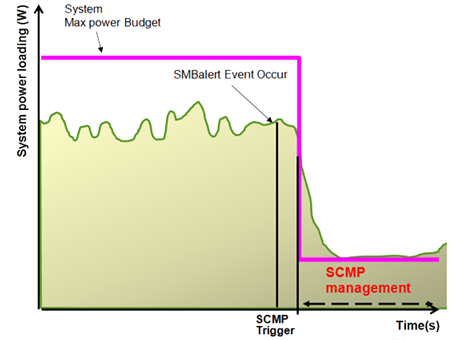
SCMP (Smart Crises Management / Protection)
SCMP is a GIGABYTE patented feature that will automatically force the system’s CPU to enter ULFM (ultra-low frequency mode for minimum power consumption) when the BMC is alerted to a PSU fault or error (such as power loss, power surge, overheating or a fan problem). This feature will prevent shutdown in systems with less than 1 + 1 PSU redundancy when one PSU is lost.
GIGABYTE Server Management (GSM)

GIGABYTE Server Management (GSM) is GIGABYTE’s proprietary multiple server remote management software platform, available as a free download from each GIGABYTE server product page. GSM is compatible with either IPMI or Redfish (RESTful API) connection interfaces, and comprises the following sub-programs:
- GSM Server, a software program with an easy to use browser-based GUI to enable global remote monitoring and management of multiple GIGABYTE servers via each server node’s BMC.
- GSM CLI, a command-line interface program to enable global remote monitoring and management of multiple GIGABYTE servers via each server node’s BMC.
- GSM Agent*, a software program installed locally on each GIGABYTE server node that retrieves additional node information (CPU/Mem/HDD/PCI/…) from the OS and passes it to the BMC. This information can then be utilized by GSM Server or GSM CLI.
*GSM Agent is currently compatible with Avocent MergePoint IPMI 2.0 BMC firmware, but not yet compatible with Megarac SP-X BMC firmware. - GSM Mobile, a remote server management mobile APP, available for both Android and iOS.
- GSM Plugin, a plugin that allows the user to manage and monitor GIGABYTE server nodes within VMware’s vCenter.
Intuitive & Informative User Interface
Starting from the GSM Server dashboard, the user can clearly understand the status of each node in the IT environment, including:
- Node connection status (system is online/offline)
- Node hardware sensor status (to detect hardware anomalies). Sensors measure voltage, fan speed and temperature
- Node usage rate status (allowing you to timely allocate more resources when they are needed), including:
- Power consumption
- Disk/RAID usage information
- Memory usage rate
- CPU usage rate
- Network card / PCI information
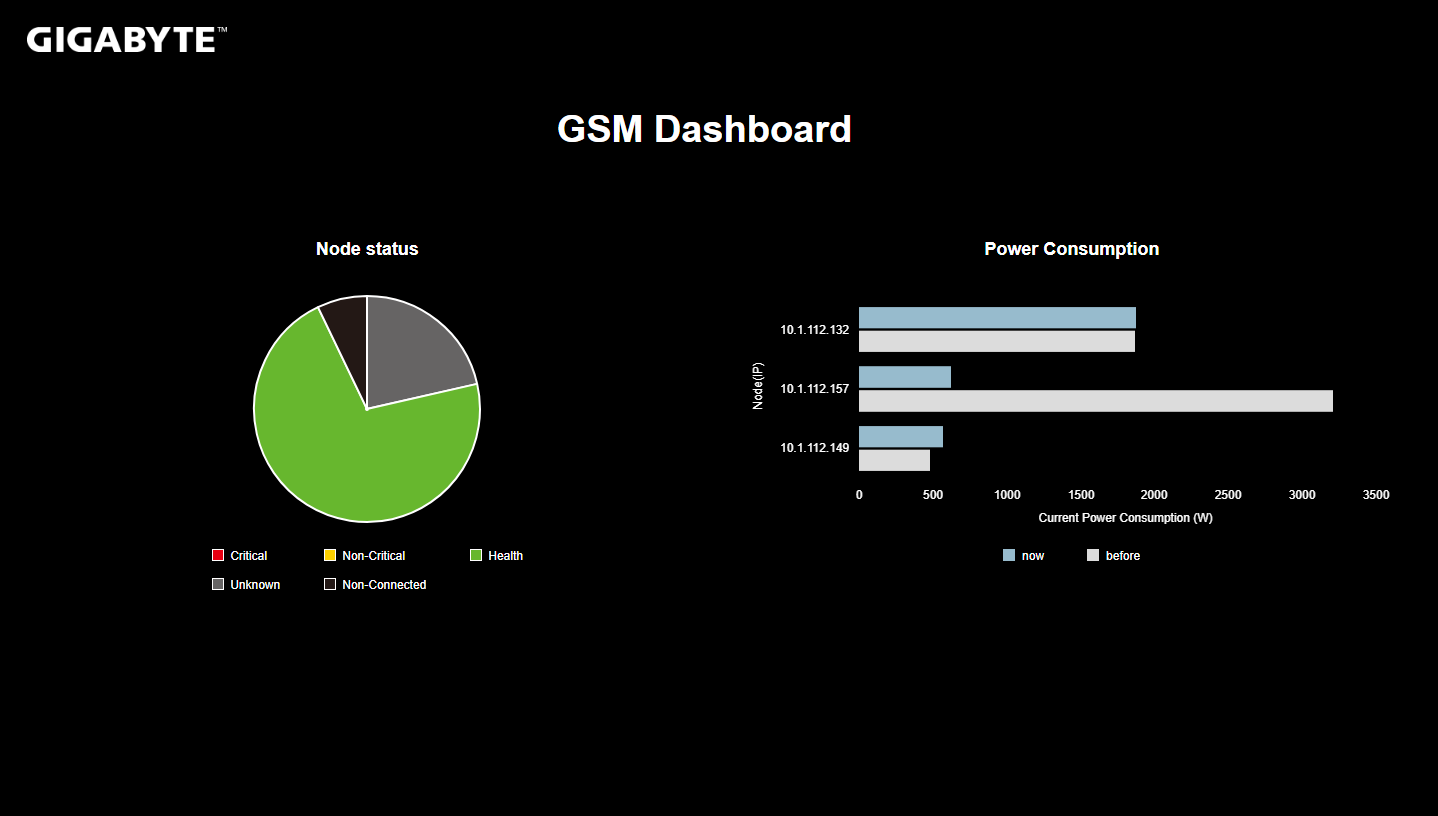
The user can also perform various management functions, including:
- Node remote access
- Power on / off / reset
- Launch iKVM
- Reboot BMC / BMC Account Configuration
- Network Configuration
- IPv4/IPv6 setting
- Alert Management
- SNMP trap setting
- Platform events filters
- Forwarding alerts by email
- BMC / BIOS / CPLD Update
- Power Consumption Limit Setting
- Group Management
- Create groups of nodes for BMC / BIOS update or manage power consumption settings
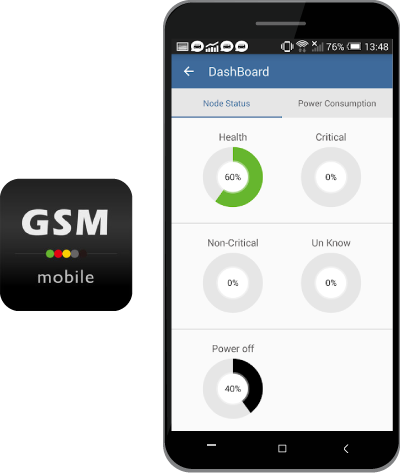
GSM Mobile for iOS and Android
A GSM Mobile app is available for download for both iOS and Android mobile phones for remote server management on the go.

Management through VMware vCenter
A GSM Plugin is available for VMware’s vCenter, allowing the user to perform remote monitoring and management of GIGABYTE server nodes without having to switch to a separate software platform.
AMI MegaRAC SP-X BMC Management Platform
This GIGABYTE server product utilizes a AMI MegaRAC SP-X platform for BMC server management, with a feature rich and easy to use browser-based graphical user interface. Notable features include:
- RESTful API support (including the latest DMTF standards of Redfish) allows the administrator to integrate with 3rd party applications for server management
- HTML5-based iKVM remote management client included as a standard feature, no additional add-on license required to purchase
- Detailed FRU information from SMBIOS
- Pre-event automatic video recording feature from 10 to 30 seconds
- SAS / RAID controller monitoring feature

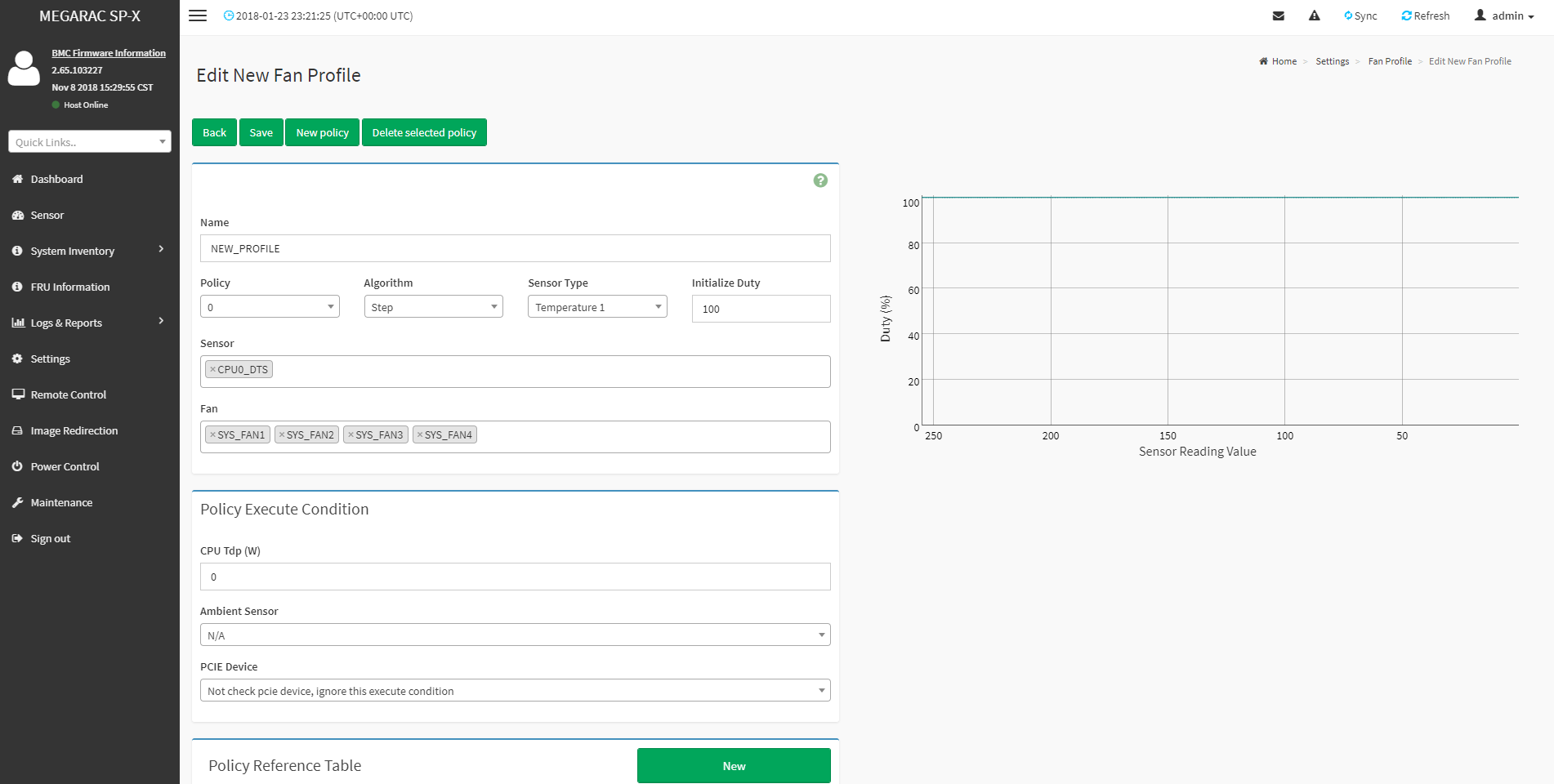
Dynamic Fan Speed Control
GIGABYTE servers are enabled with dynamic fan speed adjustment. Individual fan speed will be automatically adjusted according to the system’s current temperature (according to CPU, DIMM, M.2, HDD, GPU temperature sensors), to achieve the best cooling and power efficiency. When the BMC detects a temperature change, fan speed will be automatically adjusted accordingly. Fan speed profiles may also be manually created and edited* when necessary according to the user’s custom requirements.























































































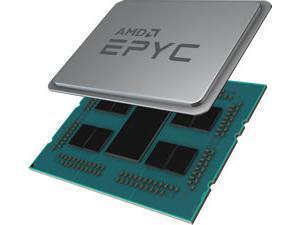
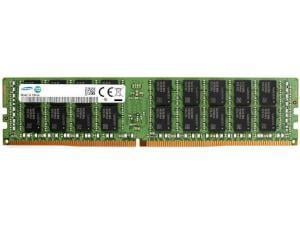

Standard build time 5 working days